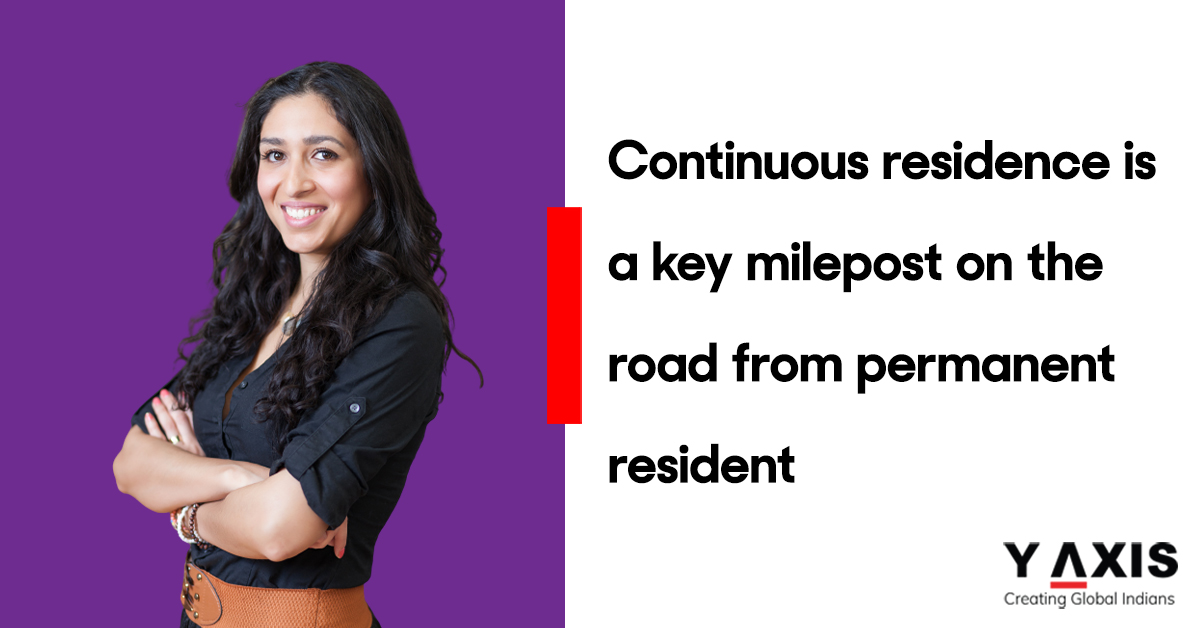Posted on March 22 2012
Continuous residence is a key milepost on the road from permanent resident
By , Editor
Updated April 10 2023
To qualify to become naturalized, an applicant must be a continuous resident of the U.S. for at least 5 years, or 3 years if married to, and living with, a U.S. citizen
More than 400 attorneys, government-accredited paralegals and trained community advocates will staff the call-in. If after speaking to an advocate you think you qualify for a benefit, the advocate will refer you to someone who can help you complete the necessary forms. The call-in will run from April 23 to April 27, 9 a.m. to 7 p.m with separate phone lines for English and Spanish callers. We will have available speakers of dozens of other languages as well. Besides the Daily News and CUNY, this year’s sponsors include media partner Univision, and sponsors Cisco, the American Immigration Lawyers Association, the Legal Aid Society, Gristedes, WADO 1280 AM, La Que Buena 92.7 and BlueWater, a Presidio Company.
You’ll find the call-in phone numbers in the April 23 Daily News.
Meanwhile, to prepare you for the call-in, over the next few weeks, I’ll answer some common questions about citizenship and immigration law. We start our discussion with the rules for naturalizing — the process where a permanent resident becomes a U.S. citizen. Today we discuss the “continuous residence” requirement for U.S. citizenship.
Q. How long must I be a permanent resident to qualify to naturalize?
A. Most naturalization applicants must have been a continuous resident for at least five years. The requirement is three years if you have been married to, and living with, the same U.S. citizen for the last three years while a permanent resident. You may file your application three months before you meet the five (or three) years of permanent residence. Special rules apply to veterans and members of the military.
If you came here as a refugee, your permanent residence date should be backdated to the day you arrived in the United States. If you were an asylee, it should be backdated on year. So, refugees count permanent residence since their day of entry, asylees one year from before the date the U.S. Citizenship and Immigration Service granted them permanent residence.
Continuous residence means you never abandoned your U.S. residence. If you have been abroad for a continuous period of more than six months, the USCIS may contest your continuous residence. Still, even after more than six months abroad, if you can prove that your primary residence was in the U.S., you should be able to show continuous residence. So for instance, if you were studying abroad, you would bring a school transcript to your interview. If you were taking care of a sick relative, you would bring a letter from a doctor. If you were simply vacationing, bring proof that you maintained a residence in the U.S. That proof might include a bank account, credit card account, proof that you returned to a job you had before you left, or an apartment lease.
After one continuous year or more abroad, you need either a reentry permit issued by the USCIS or a special immigrant visa issued by a U.S. consul abroad to return. Note that in most cases, if you have been abroad for more than 365 continuous days, even with USCIS permission, with limited exceptions, that will break your period of continuous residence.
If you entered after more than a year abroad with your permanent resident card only, but the immigration inspector didn’t realize that you had been abroad so long, a USCIS naturalization examiner will nevertheless consider you to have abandoned your residence. If you were abroad for more than a year without USCIS permission, speak to an immigration law expert before applying to naturalize. You’ll want to make sure you have a current claim to permanent residence. Otherwise, you risk being deported.
The law exempts certain business travelers, religious workers, government employees, researchers for a U.S. research agency, seamen and women and members of the military from the continuous residence requirement.
If you are abroad for less than six continuous months, to deny you naturalization, USCIS would need to prove that you had abandoned your residence. So, trips abroad of six months or less, are rarely a problem. That’s true even if those trips were often and lengthy. Further, USCIS is most concerned about recent trips. Trips many years ago of less than one year, even though longer than six months, aren’t normally a problem with most naturalization examiners.
Members of the military serving during wartime qualify to naturalize without regard to the continuous residence requirement. Based on an order signed by President Bush in 2002, those serving on Sept. 11, 2001 and after, until a U.S. President ends the program, benefit from this rule.
Tags:
call-in
CUNY/Daily News Citizenship Now!
naturalization
permanent residence
Share
Options for you by Y-Axis
Get it on your mobile
Get News alerts
Contact Y-Axis


